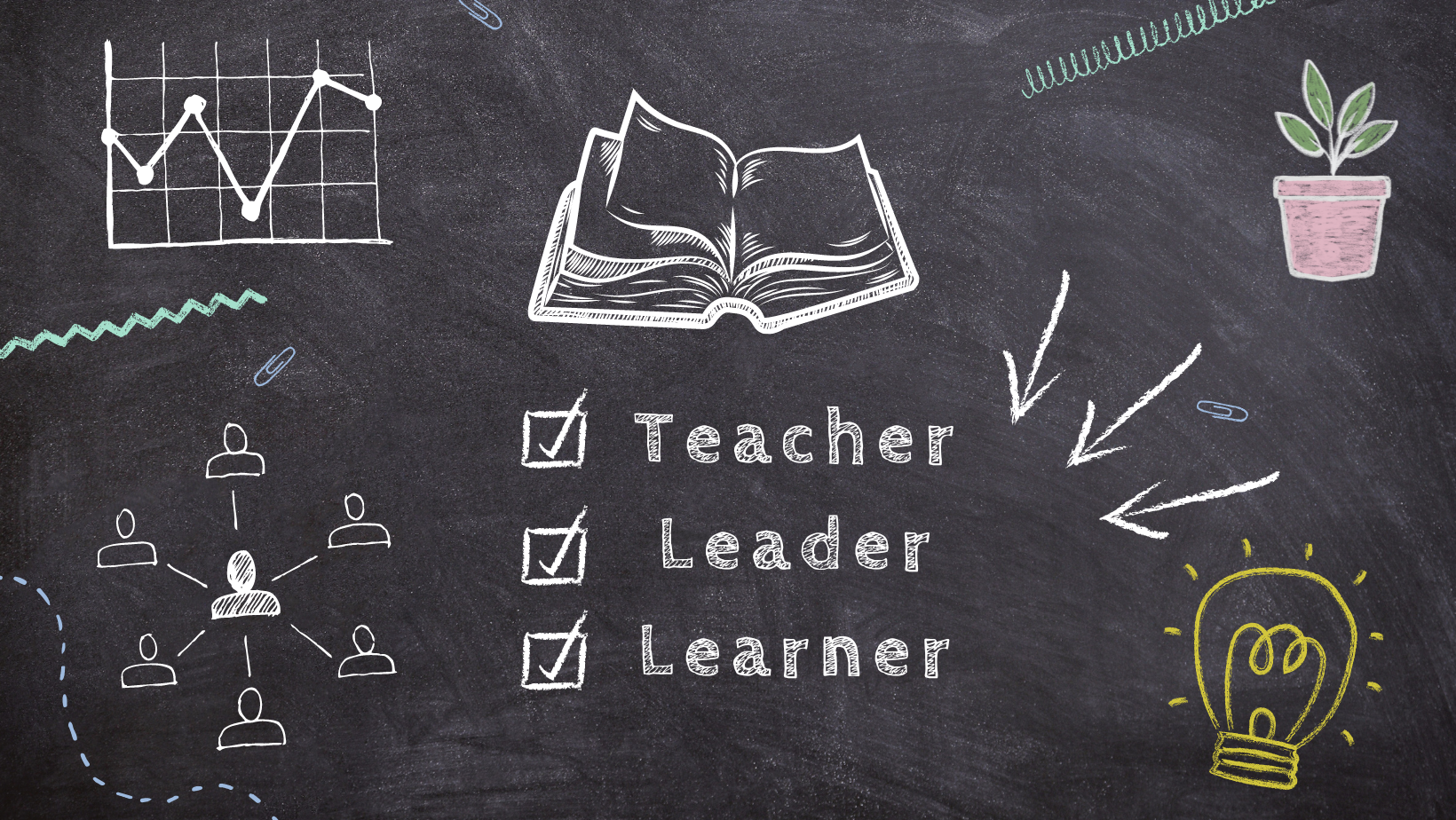
Are leaders creating opportunities that will ensure that the next generation of educators has a sound foundation to stand on? Are we building capacity to create the next generation of change agents? I posed this very question to my colleagues some time ago. We were tasked with creating a list of teachers who could help us carry out some of the responsibilities of developing curriculum and delivering professional learning in our district. However, we had difficulty creating a substantial list. This prompted us to revisit how we were developing teachers within our organization.
We reflected on our past efforts and discussed the pros and cons of each. We determined that our efforts were most successful when we created professional learning opportunities that included guided practice, coaching, feedback, and reflection. We also were reminded that teachers who participated in learning communities gained a greater sense of self-efficacy.
To create a viable professional learning program in our district, we gave a nod to our past Teaching American History Grants, a discretionary grant program. The Teaching American History grant program was funded under Title II-C, Subpart 4 of the Elementary and Secondary Education Act, which supports programs that raise student achievement by improving teachers’ knowledge, understanding, and appreciation of American history. While we could not replicate the entire program itself, we could borrow from the some of its tenets, to build the capacity of teachers in content and pedagogy and to facilitate a community of learners. With this in mind, we created a Teacher Leader Corps program.

What is a Teacher Leader Corps Program?
A Teacher Leader Corps program is a multiyear professional development opportunity that supports a teacher cadre of learners to develop in areas driven by an organization’s vision or purpose. Interested? If so, you are in luck.
The Partnerships and Instruction Team at Social Studies School Service is here to help. In creating your Teacher Leader Corps program, the Partnerships team collaborates and plans with leaders in the following areas.
Discovering Your Why
What are you building and why is it important? This question forces leaders to examine the conditions of their organizations to determine what problem of practice they wish to solve or address.
Developing Programs
What are the action steps that will support your program? Programing involves identifying strategies and projects that will support your vision and goals.
Developing Resources and Partnerships
How will support your teacher leader corps program? Our Partnerships team will help you reimagine your educational partnerships so that vendors, university partners, and non-profits become a true thought partner.
Discovering Hidden Talents
Who would you invite to be a part of your teacher leader corps program? Is it the superstar teacher at the high performing campus or would you invite the teacher who has not quite mastered his or her craft? Our Partnerships team will help you develop a candidate profile as well as a recruitment plan and the tools that will support this phase of your implementation.
Deploying Teacher Leaders
How would you create space and time to allow teacher leaders to exhibit their newfound skills? Discover Develop Deploy: Creating a Teacher Leader Corps Program by Dr. Montra Rogers, Director of Partnerships and Instruction here at Social Studies School Service provides a step-by-step process for hosting a For Teachers by Teachers Conference. Here teachers deliver professional learning sessions that showcase their new talents. What are some other ways in which we can allow teachers to authentically exhibit their new learning? Let’s put our heads together and come up with a plan.

How will a Teacher Leader Corps benefit your district?
How do we as a nation build teacher capacity? We have all read a myriad of books and articles which suggest that professional learning is the catalyst to reach this goal. This is partially true; short term training with little opportunity for follow-up and feedback won’t help us achieve our goal. What is needed are systematic professional development opportunities like a teacher leader corps program, that includes ongoing training to include opportunities for guided practice, coaching, feedback, follow up, and monitoring.
Given an organization’s why, their vision and goals, a teacher leader corps program can help improve teacher quality in a variety of areas. For example, in Discover, Develop, Deploy, the goal of the teacher leader corps program described used a multi-year approach to build teacher capacity in content knowledge, instructional practice, the facilitation of professional learning, instructional coaching, and leadership. Let’s look at one participant’s reflection regarding her growth and development.
When I joined the Teacher Leader Corps, I was beginning my second year of teaching. To be honest, I was clueless—trying to figure out my own teaching style, learning the content, attempting to master classroom management. I wholeheartedly believe that the support, challenges, and guidance I have received from the leader corps have pushed me to grow. I am now in my sixth year in the classroom, and [I’m the] campus social studies department chairperson. If you had told me five years ago that one day I would be comfortable modeling and planning lessons for other teachers, leading professional learning communities, participating, and sharing my own experiences and best practices at district department chairperson meetings, I wouldn’t have believed you.
Recently, we have worked with districts who have chosen to build teacher capacity in the area of lesson development while another is focusing on building the instructional coaching capacity of their instructional specialists.
Regardless of your area of focus, teacher leader corps programs have shown to increase teacher self-efficacy and community building. As a result, teachers feel empowered and have a sense of belonging, of feeling supported. The most powerful evidence of teacher leader corps program success – that teachers continue in the education field with an unwavering commitment to excellence as they serve students, campuses, districts, and ultimately themselves.
How does this partnership work?
Districts may receive consultation and support for all program components for the first two years of program implementation. During the third year of program implementation, districts may receive support in one of the Teacher Leader Corps program components of their choosing. After the third year, districts move to a monitored status and will receive the distinction of Teacher Leader Corps Implementation Districts.
Ready to implement a Teacher Leader Corps program in your district?
Our Partnership and Instruction Team is here to support you!
Using district priorities, narratives, talent, and potential, Dr. Montra Rogers works closely with stakeholders to plan and program for the implementation of Social Studies School Service resources as the company’s Director of Partnership and Instruction. She understands firsthand the power of viable partnerships. Montra appreciates new opportunities and experiences to include traveling, dining, and attending social/cultural events; this also includes volunteering in her local community. She is the eldest of five girls and mother to one son. Montra has an Ed.D. in Educational Leadership, an MLA in Liberal Arts, and a BA in History.
